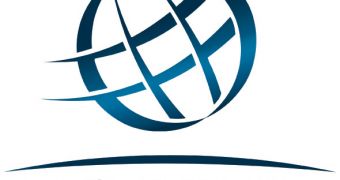Several major internet organizations and government bodies have put out a statement that is deeply troubling on several levels. The organizations believe that the internet and the world wide web needs to be more globalized, i.e. less in the hands of the US.
Considering all the recent revelations about NSA spying, which the statement actually cites, the move is hardly surprising.
And, from that point of view, it's clear that less US influence is a good thing. But the catch is that this "globalization" of the internet may actually just be the perfect occasion for countries like Russia, China, Iran and so on, to further push their agenda of more local control over the internet.
These countries have been asking for years for the decentralization of ICANN and other internet governing bodies. ICANN is an independent organization, but still has strong ties to the US government, from which it originated.
Until now, the US has been able to fight off against such demands by correctly arguing that handing over control of the internet to countries with obvious problems with free speech is problematic.Meanwhile, in the US, ICANN benefits from strong First Amendment protection, which guarantees free speech.
And, if NSA troubling surveillance expansion over the past decade hadn't come to light or, rather if the NSA didn't push for greater and greater control over the internet, the US could have made the same argument today and would have found supporters.
As it stands, the US can't appeal to the moral argument any longer. Many warned that one big effect of the NSA leaks would be that the US would no longer be in a position to advocate for internet freedom. And, indeed, that is exactly what is happening now.
The Internet Corporation for Assigned Names and Numbers (ICANN), the World Wide Web Consortium (W3C), Internet Society (ISOC), the Internet Engineering Task Force (IETF), and all the continental groups like the American Registry for Internet Numbers (ARIN), Asia-Pacific Network Information Centre (APNIC) and so on, co-signed a statement pushing for less control from the US government.
"[The leaders of these organizations] reinforced the importance of globally coherent Internet operations, and warned against Internet fragmentation at a national level," they said in their statement.
"They expressed strong concern over the undermining of the trust and confidence of Internet users globally due to recent revelations of pervasive monitoring and surveillance," they added.
"They identified the need for ongoing effort to address Internet Governance challenges, and agreed to catalyze community-wide efforts towards the evolution of global multistakeholder Internet cooperation."
"They called for accelerating the globalization of ICANN and IANA functions, towards an environment in which all stakeholders, including all governments, participate on an equal footing."
So, on the one hand, we can continue to rely on the old system, and continue give the NSA and the US government the opportunity, means and justification to spy on us all. Or, we can have an internet which is partially government by the likes of Russia and China.
There's not much of a choice in there and it certainly looks like whatever happens, we, the regular people, are getting the short end of the stick.

 14 DAY TRIAL //
14 DAY TRIAL //